PI3K/Akt/mTOR Signaling

The PI3K/Akt/mTOR signaling pathway is a key regulator in growth, survival, cell cycle proliferation, protein synthesis and glucose metabolism. Growth factors, hormones, and cytokines can activate this pathway by binding their cognate receptor tyrosine kinase (RTK), cytokine receptor, or GPCR, resulting in the activation of lipid kinase PI3K which produces PIP3 at the plasma membrane.
The binding of PIP3 translocates Akt to cell membranes, enables Akt activation through phosphorylation at Thr308 mediated by phosphoinositide dependent kinase 1 (PDK1). In addition, Akt is phosphorylated at Ser473 by the mTOR-rictor complex, mTORC2. PTEN is a negative regulator of Akt signaling that reverses the function of PI3K by removing 3’-phosphate groups. Akt activity is also negatively regulated by the phosphatases PP2A and PHLPP. Akt propagates its signal to affect DNA transcription, cell cycle and apoptosis. Akt can activate mTOR directly by phosphorylation or indirectly, by phosphorylation and inactivation of mTOR inhibitor TSC2 and PRAS40. Together these mechanisms stimulate cell growth and G1 cell cycle progression through signaling via p70 S6 Kinase and inhibition of 4E-BP1. Defects in PI3K/AKT/mTOR signaling are implicated in cancer, diabetes and cardiovascular disease etc.
-
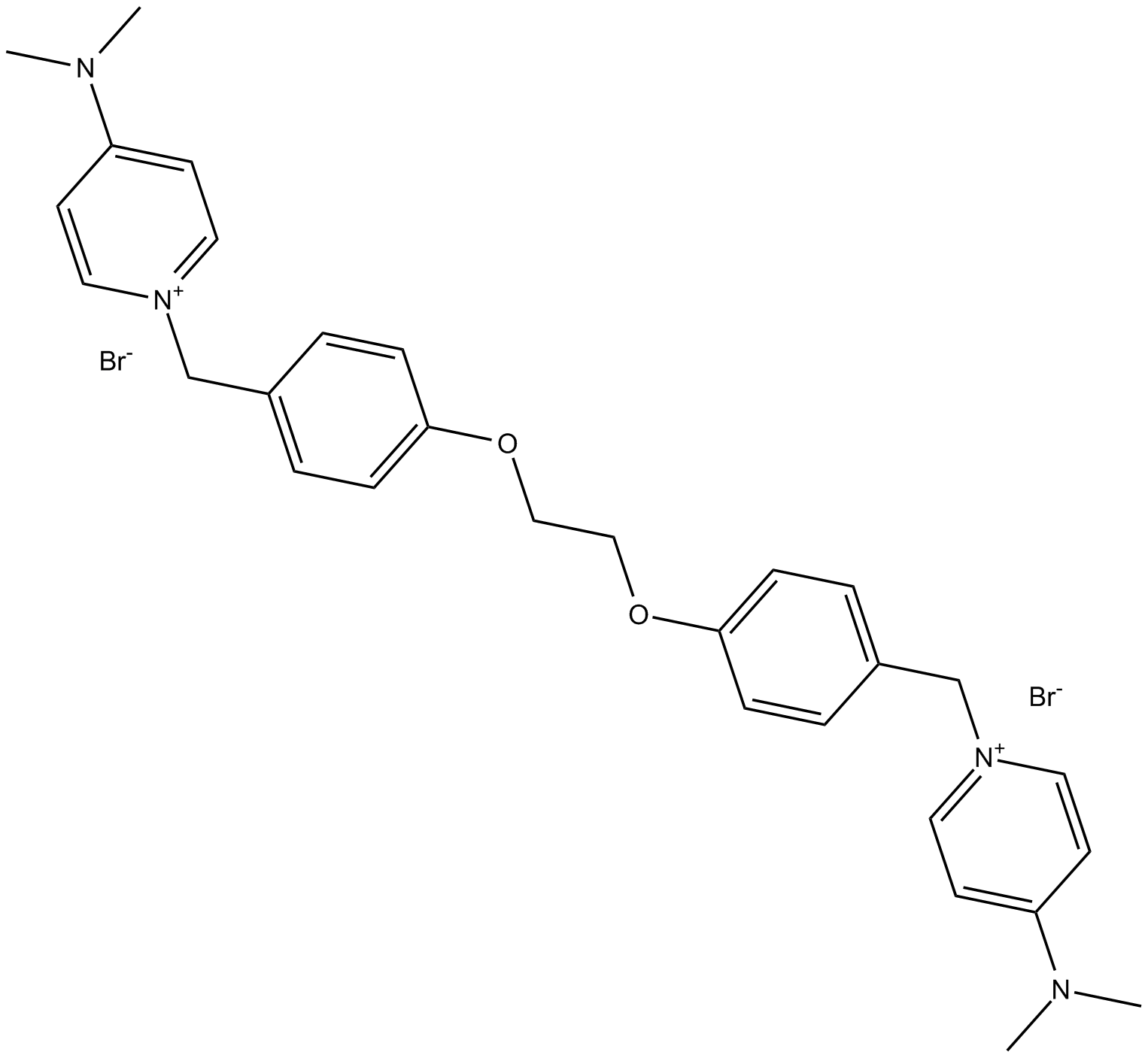 B8541 EB-3DSummary: 有效的选择性胆碱激酶α1(ChoKα1)抑制剂
B8541 EB-3DSummary: 有效的选择性胆碱激酶α1(ChoKα1)抑制剂 -
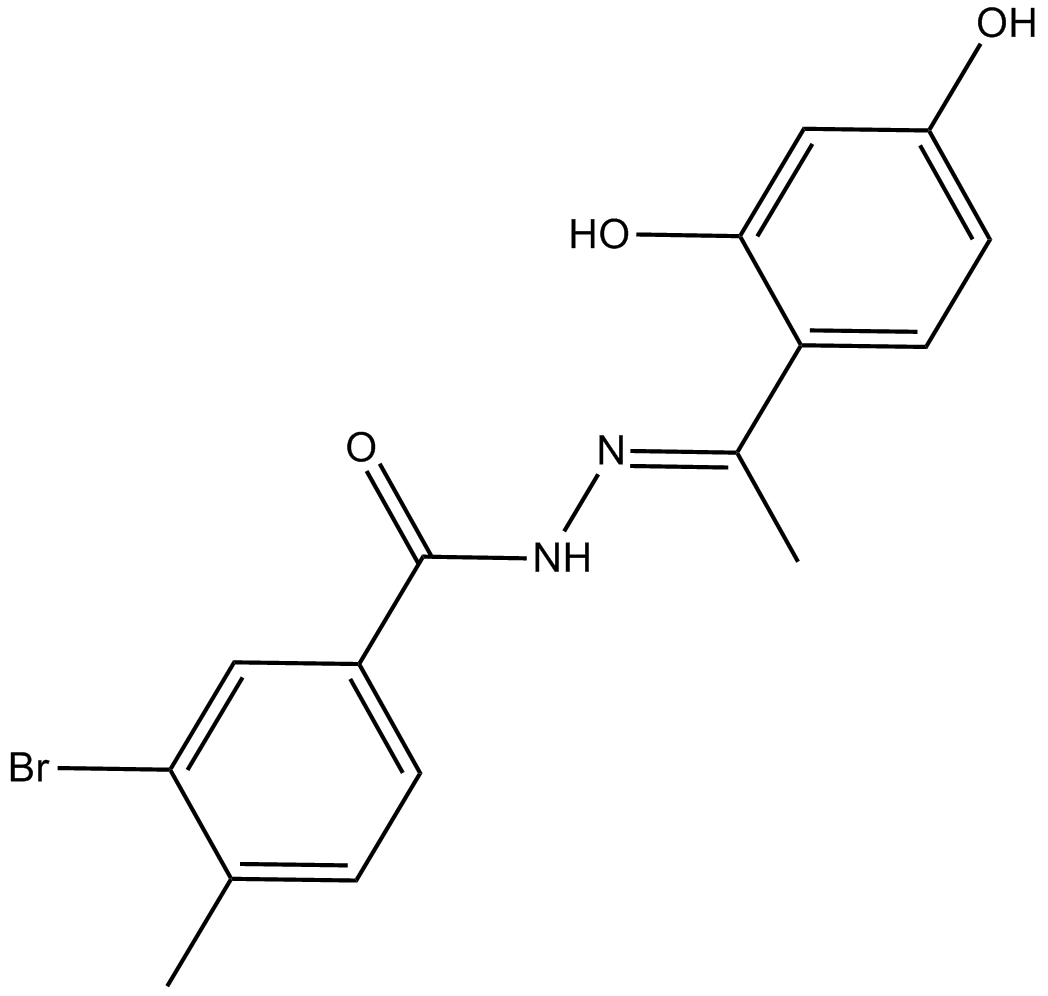 B8512 mTOR inhibitor-1Summary: mTOR通路抑制剂
B8512 mTOR inhibitor-1Summary: mTOR通路抑制剂 -
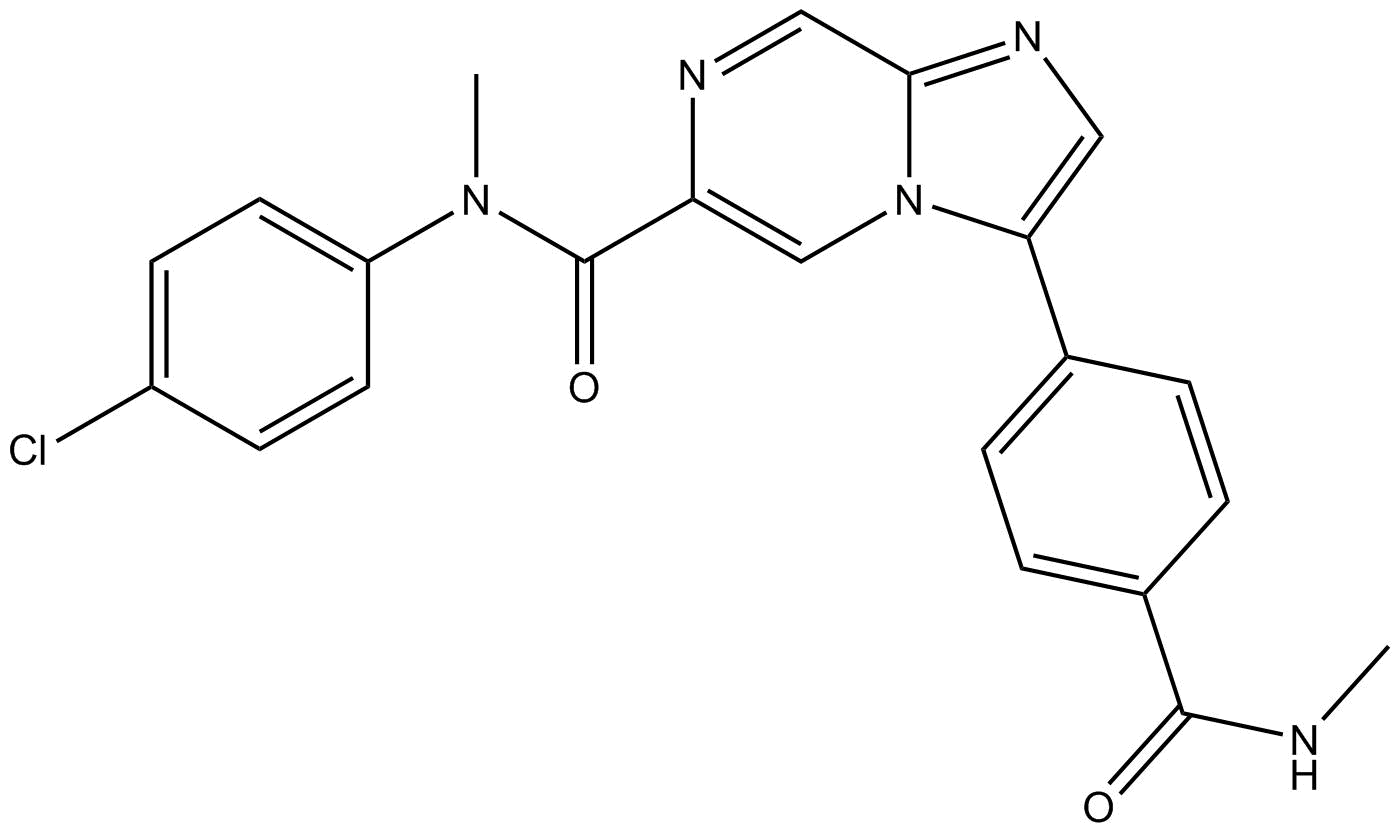 B8489 KDU691Summary: 一种 Plasmodium PI4K 抑制剂
B8489 KDU691Summary: 一种 Plasmodium PI4K 抑制剂 -
 B8484 HAMNOSummary: 一种有效的、选择性的、具有抗肿瘤活性的 replication protein A (RPA) 的抑制剂
B8484 HAMNOSummary: 一种有效的、选择性的、具有抗肿瘤活性的 replication protein A (RPA) 的抑制剂 -
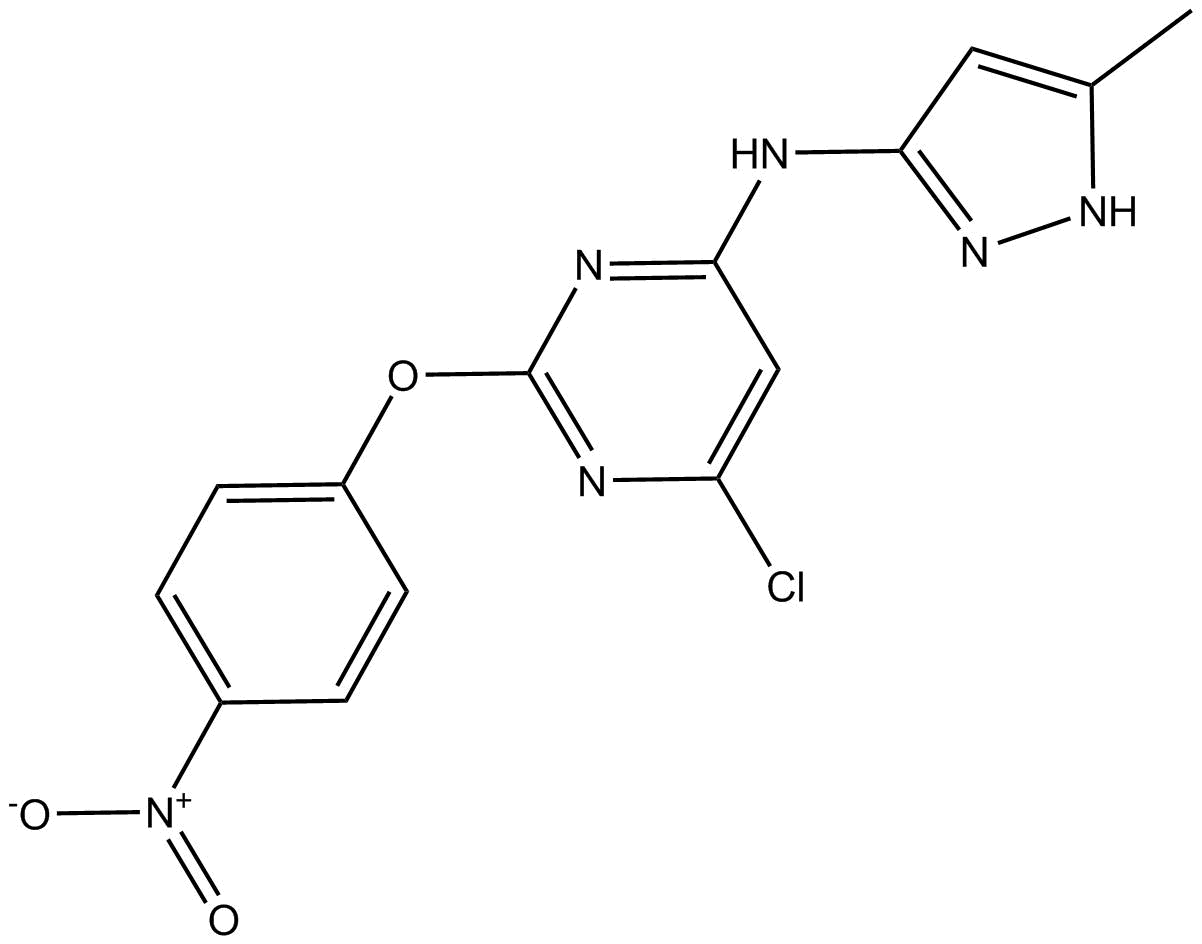 B8481 AutophinibSummary: 一种有效的,选择性细胞自噬抑制剂
B8481 AutophinibSummary: 一种有效的,选择性细胞自噬抑制剂 -
 B5246 740 Y-P5 CitationTarget: PI3KSummary: PI3K激活剂
B5246 740 Y-P5 CitationTarget: PI3KSummary: PI3K激活剂 -
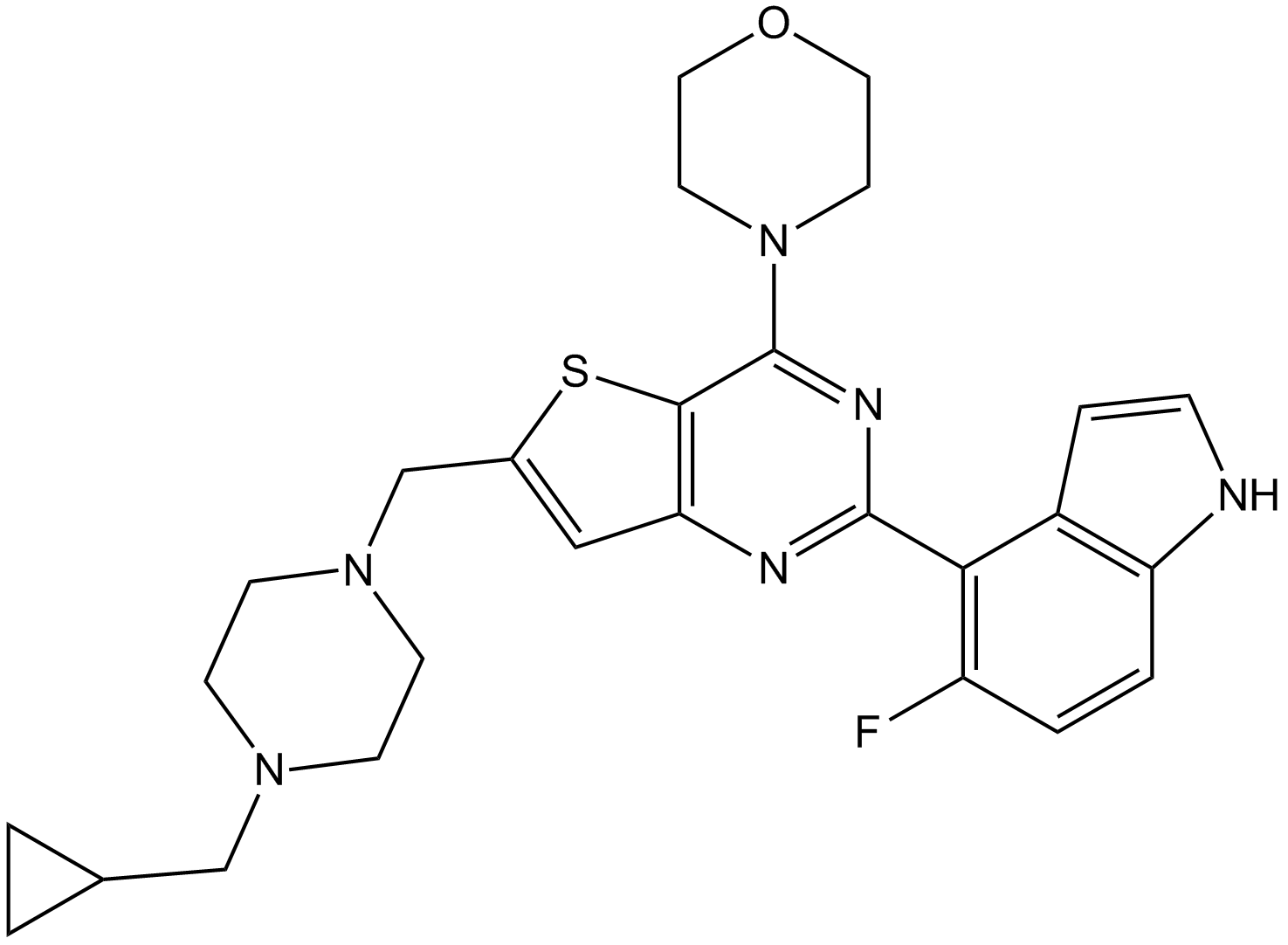 B4660 PI-3065Target: PI3KSummary: P110δ激酶抑制剂
B4660 PI-3065Target: PI3KSummary: P110δ激酶抑制剂 -
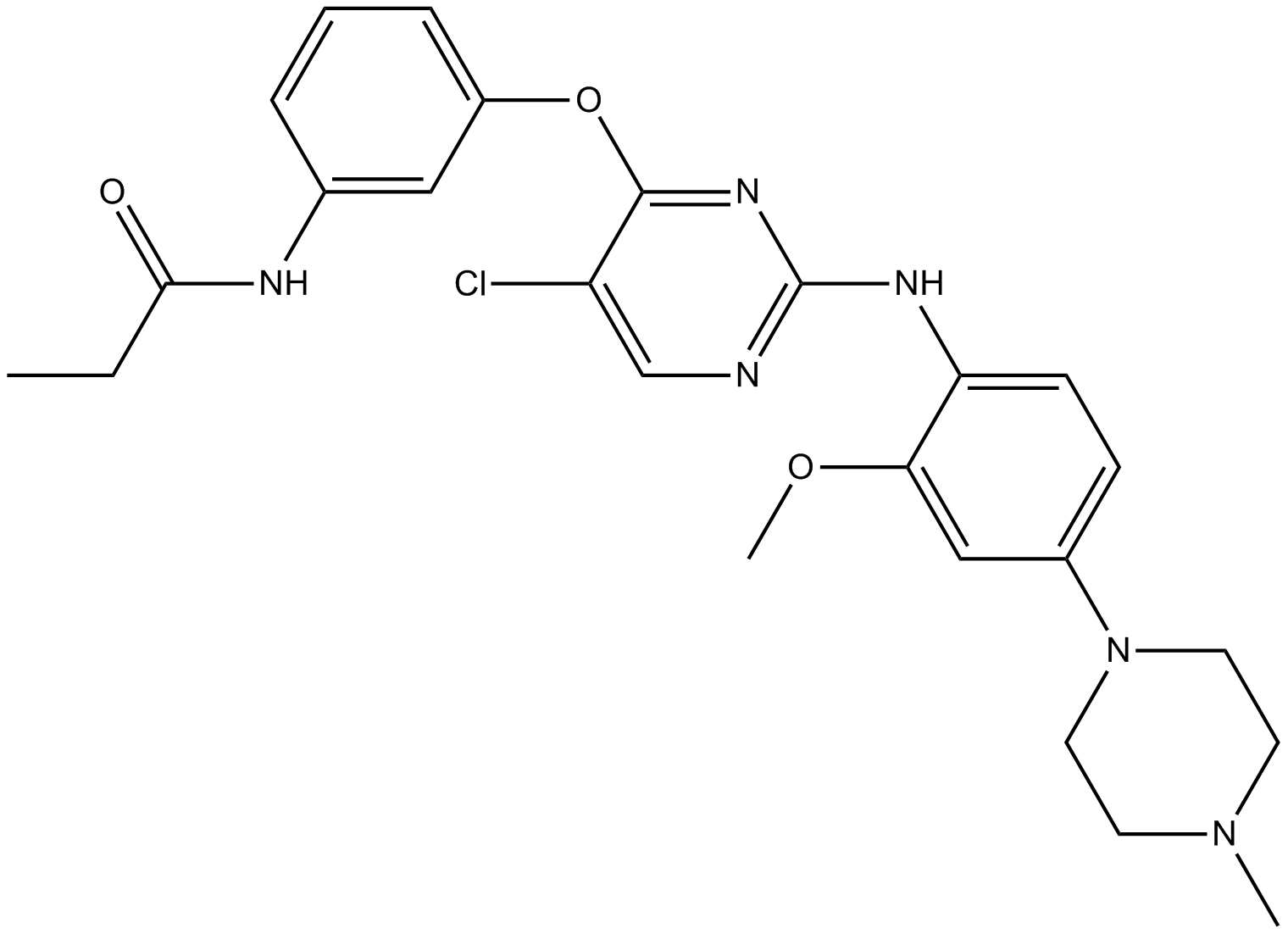 B1374 WZ4003Target: NUAK1|NUAK2Summary: NUAK1/2抑制剂
B1374 WZ4003Target: NUAK1|NUAK2Summary: NUAK1/2抑制剂 -
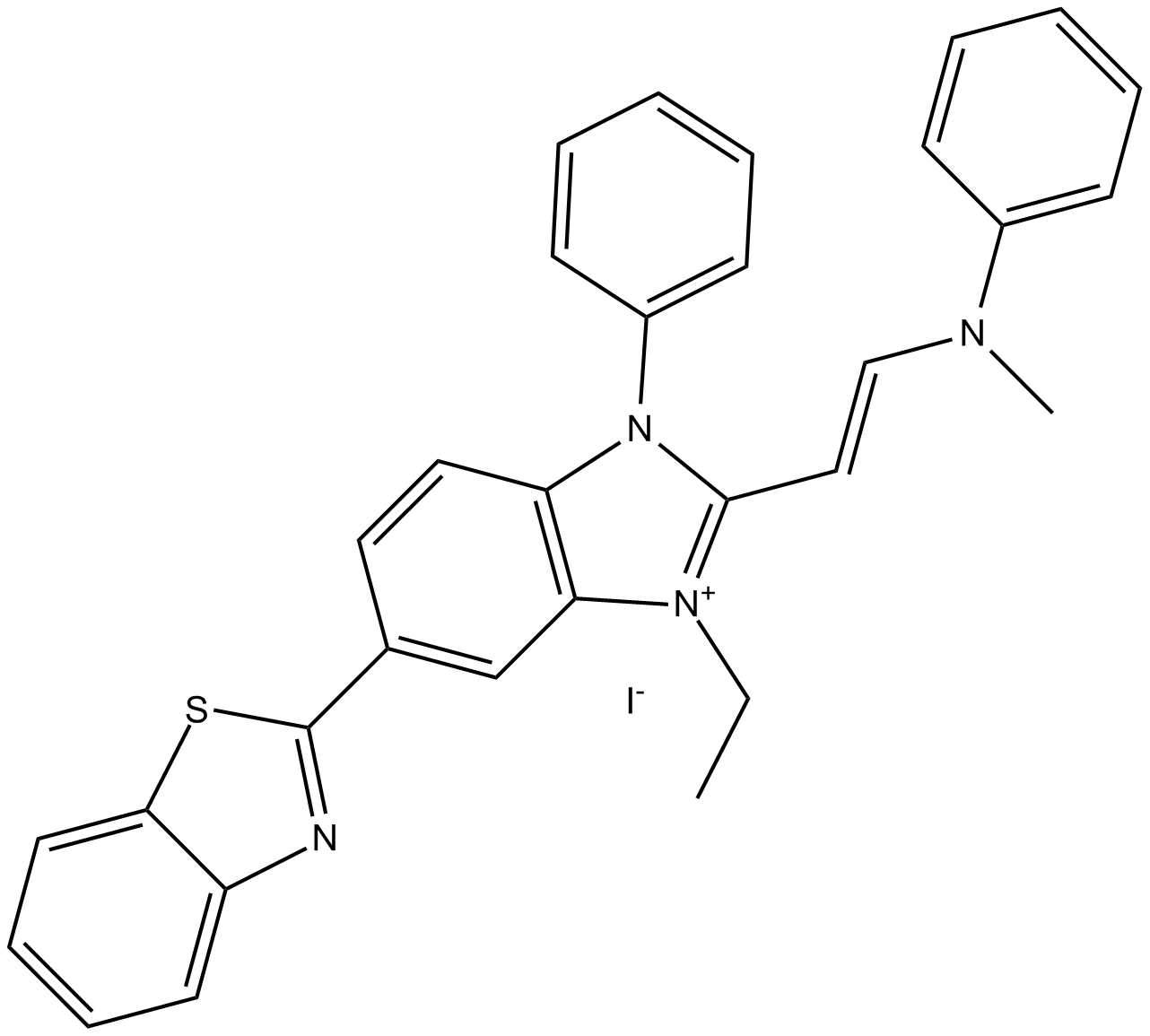 C5867 Akt Inhibitor IV
C5867 Akt Inhibitor IV -
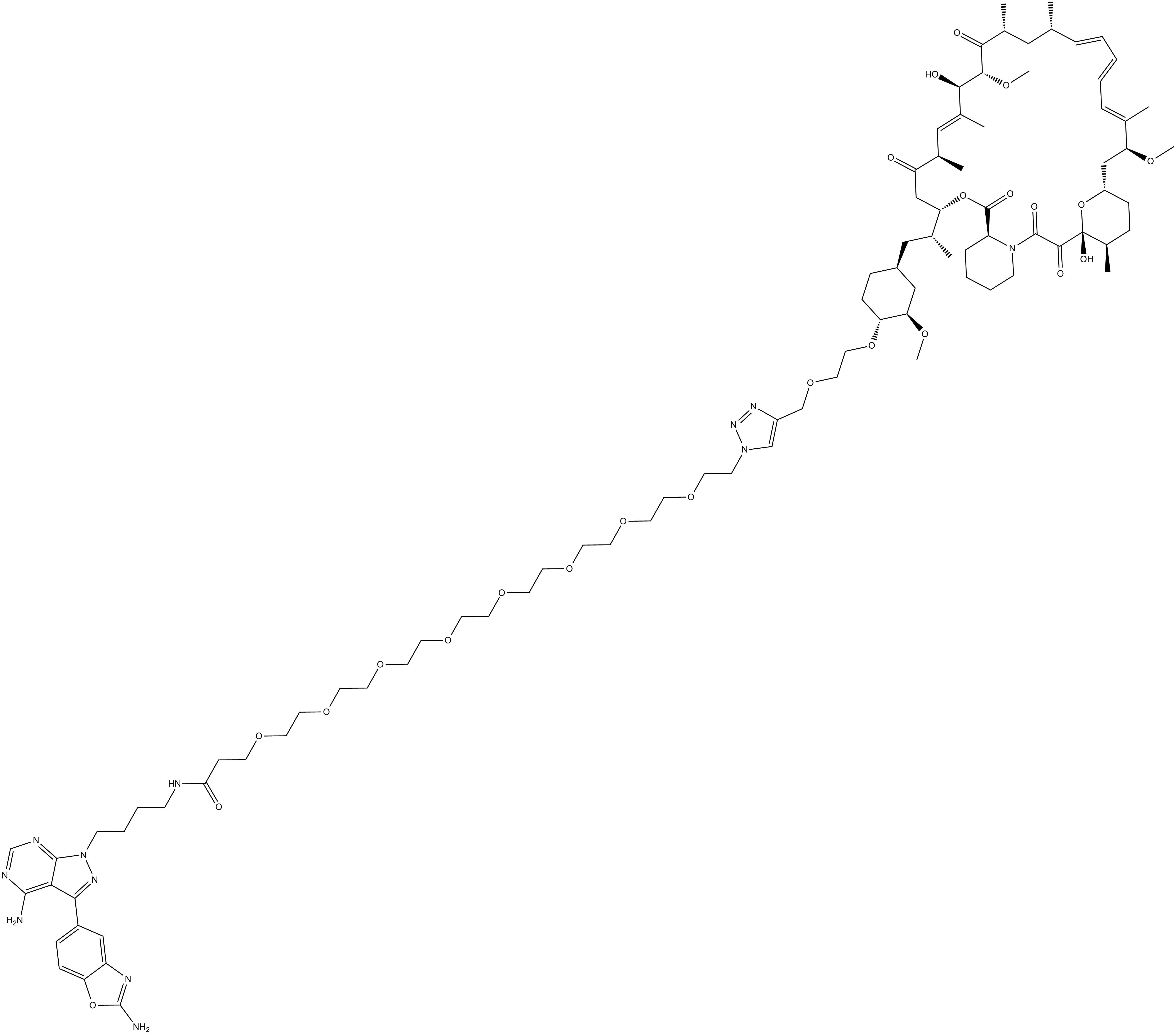 A8764 Rapalink-1Target: mTORSummary: 第三代mTOR抑制剂
A8764 Rapalink-1Target: mTORSummary: 第三代mTOR抑制剂

